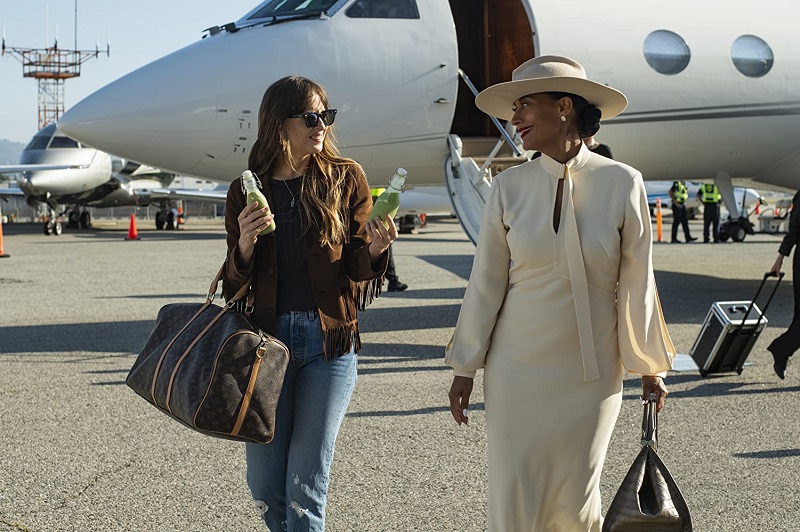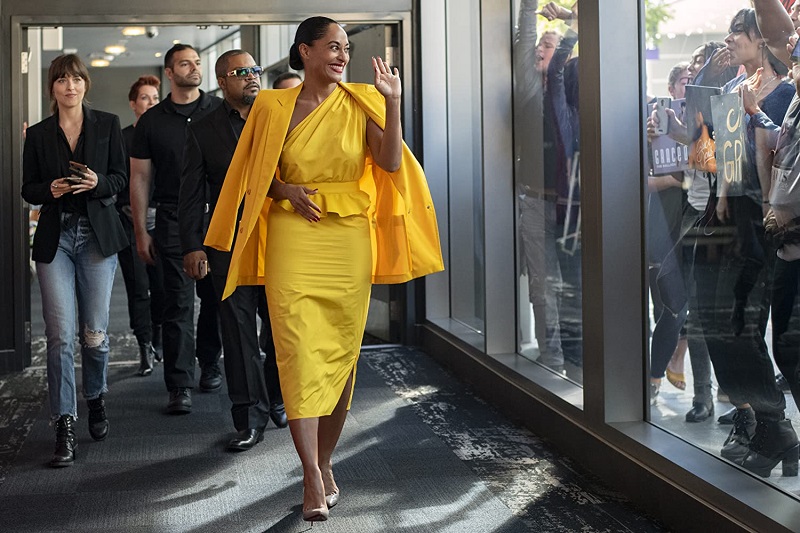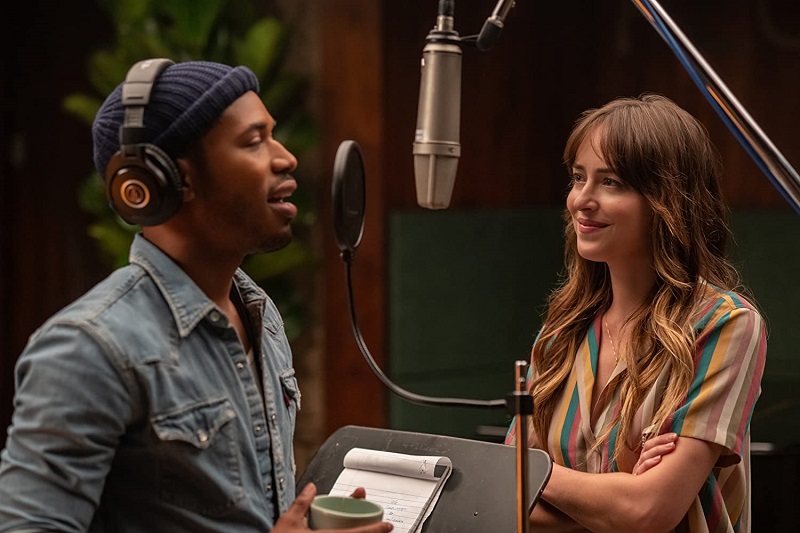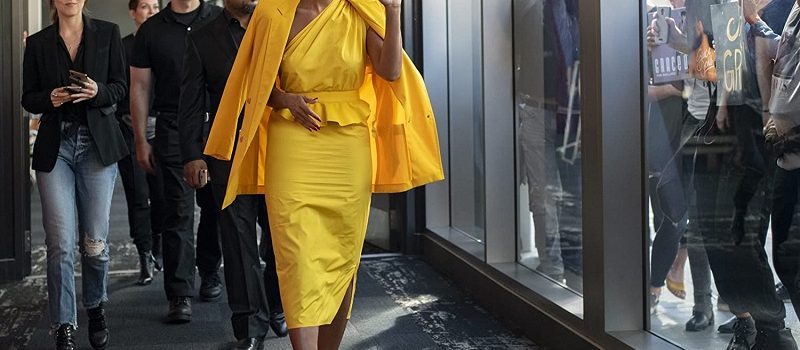Focus Features smartly decided to release their The High Note for audiences at home via on-demand when their normal release date of May 29, 2020 became clear it wouldn’t happen. What with movie theaters closed due to the pandemic, there is a real need to entertain the masses and that has seen some serious success from previous at home premieres for other films that were originally slated for theatrical runs—including the animated Trolls: World Tour and the rom-com The Lovebirds. There is an audience hungry for escapism and a particular type of film clearly has found success where others may have felt failure.

Now, Wonder Woman 1984 smartly moved its release date to August rather than premiere at home. That’s a “need to see on the big screen” type of picture. Not that sitting in the dark and tapping our toes to the soundtrack of Trolls or sharing laughs with a crowd as Kumail Nanjiani does something hilarious in The Lovebirds isn’t missed. It is, wholeheartedly. But comedies and animated family musicals can easily work well with our tripped-out home theaters—what with our beautiful flatscreen TVs and sonic succulence.
Focus Features, who lives under the Universal Pictures banner, has a flick on their hands with The High Note that checks many of those boxes and should do well with a quarantined audience. The film follows Maggie (Dakota Johnson), who works as a personal assistant to music superstar Grace Davis (Tracee Ellis Ross), who finds her career at a crossroads. She is still selling out arenas, but the tug of shaking things up is gnawing at her soul—Davis hasn’t had an album of all-new material in a decade. Maggie took the job with Grace because she felt that her composing education would eventually enter the fray and allow her to write songs and produce tracks with her boss. Three years have passed and that has not happened.
Meanwhile, Maggie meets David Cliff (Kelvin Harrison, Jr.), an up-and-coming singer-songwriter who is in desperate need of some professional guidance in the recording studio and beyond. She offers her services to him and that’s when things get complicated. Grace has her manager always up in her business, wanting to take things safely—such as take an offer from Caesar’s in Vegas to do a residency. Jack Robertson (Ice Cube), has been with Grace since the beginning. His opinion is widely welcomed, but there’s a sense that the superstar singer is not happy with the status quo. Thing is, she has no idea that her assistant desires more and that Maggie is working with Cliff on the down-low.
The first key to success with The High Note is the chemistry between its leads. Ross and Johnson have it in spades. Their relationship feels as real as one would expect from a superstar and her assistant—particularly one that had been serving that role for over three years. There is a friendship level there, yes, but Grace never misses an opportunity to remind her assistant what her role is and how clearly that is defined. Jack also goes out of his way to repeatedly remind Maggie what her spoke in the Grace Davis wheel is, and it’s all about supporting. Even though the singer likes Maggie’s “mix” of a track on her upcoming live album better than the producer that Jack had tapped, there is an earnest surprise from Davis that she is seeking more out of the relationship than “assisting” her.

Another important chemistry key arrives in the Cliff and Maggie dynamic. Their relationship is professional, but there is a hint of a romantic spark there and both avenues are brilliantly achieved by the actors. There is something about what we witness with the aspiring singer and Maggie that viewers will inherently cheer for these two to work out—both professionally and romantically. These The High Note characters, across the board, are so richly developed that an inherent connection between audience and ensemble elevates the emotive pull.
The High Note achieves this through a script from a writer making her big-screen debut. Flora Greeson’s screenplay could not have found a better director to bring it to life and inject three-dimensions across the board, Nisha Ganatra (who took a script by Mindy Kaling and made Late Night pure joy). Ganatra and Greeson form a talent tandem that has produced a creative environment conducive to artists turning in extremely high-level work. That’s what we have seen from Johnson, Ross, Ice Cube, and even character actress June Diane Raphael (who plays Grace’s “house assistant”). For example, Cube’s role could have been a cardboard cutout of that stereotypical music manager who is all about the Benjamins and because of that may not have his client’s best musical interest in mind. Through the Ride Along star’s layered turn, Jack is all about the money, yes, but there is a reason for that, and it is richly laid out by Ganatra in her screenplay.

Ross did not have to look too far for inspiration for her capturing the entity that is Grace Davis. The actress is the daughter of Diana Ross and there are aspects of Davis that recall the former leader of the Supremes. The Rock and Roll Hall of Fame inductee may have provided a starting point for her daughter’s characterization of Davis but sharing fame and being at a career crossroads is it. From the moment the Blackish star explodes off the screen in The High Note, it feels raw from the point of view that every artist wants to control their own destiny. There is an innate frustration with where Davis’ career lies currently, and Maggie feels it too. The mystery, for us, is how everyone involved will approach this fork in the career road. The actress brings a humanity to Davis that is unique. Too often, performers “mail it in” when faced with tackling a role that seems to be an archetype. That could easily have been the case with Ross, especially with who her mother is … and in fact, may have been an element that could have had her turning down the role. Instead, she forged ahead and took the challenge and made it uniquely her own and as such, our opinion of her talent shot ever higher.
Hollywood has had its fair share of films about music superstars, but everything about Ganatra’s film feels singular. An enormous amount of credit has to be laid at the feet of Johnson. The actress, who achieved wide fame (if not acclaim) from her work on the Fifty Shades of Grey movies, isn’t simply content utilizing her doe-eyed innocence to convey her character’s lot in life. After a visit to see her father (played ever so subtly by Bill Pullman), everything that has been conveyed about Maggie up until that point comes rushing to the forefront, and what it is that drives her is crystal clear. It is at that point that the audience’s investment in the direction of Maggie’s life and career (and by larger extent, where this film ventures next) starts to pay off in from that emotive investment in the first two acts. Johnson has to meticulously thread a needle with every aspect of her character’s orbit. That is no easy task. Whether it’s her interactions with Davis, Cliff, Robertson, heck even Gail—each showed how much the actress has grown in a short amount of time.

Now, The High Note is not the most complicated of stories—nor is it required to be. Its timing is everything. With a legion of souls stuck at home seeking any kind of hope that Hollywood can offer through its seismic storytelling potential, the film does not simply rest on its laurels and coasts from opening to closing credits. It tackles a few challenging issues, surprisingly those mostly reside in the neighborhood of self-doubt.
What is so resonant about the film is that this is a story about pursuing a dream and believing in oneself—regardless of what arena those dreams reside. The flick just happens to be about the glamourous life of the music industry within the landscape of Los Angeles, aka La La Land. It may seem like the simplest of premises, but the heart of the film transcends pop culture aspiration. It also validates that whatever your ambitions are … they matter. There are a whole lot of dreams laid out in The High Note. There are the obvious ones expressed by the leads. But Cube’s Jack has his goals—for his client and for himself. Everyone is reaching for that pie in the sky and what it uniquely means to them. Where The High Note triumphs most is drawing dreamers into its web and inspiring us to subjugate the doubts that cloud our endeavors and to persevere—regardless of what stands in the way.
The High Note premieres at home May 29.
Grade: B

